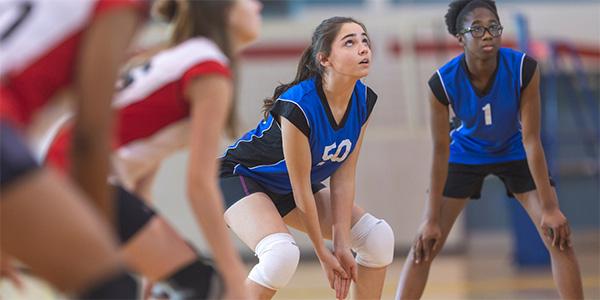
How to Help Your Sports Kid Achieve Their Goals
Too often, sports parents set goals for their kids that are different than the kids’ goals, says Dony Wilcher, a popular basketball coach and program director for Showtime Athletics, a youth sports organization in Portland, Ore. It’s important to help sports kids identify their own goals, then help them follow through on them, he says.
“I had one parent who wanted the world for his child. He went out of his way to get him the right shoes and send him to the best camps. At the end of it all, he was perplexed that the kid was not a superstar. In some cases, kids will veer away from the sport altogether if the parents’ goals are different than theirs,” says Wilcher, a former Division I basketball player.
At first, most kids generally want to play sports to have fun and be with friends. At that point, that’s their goal, and it’s not necessary to set goals with them. When they begin to be competitive–when they play in tournaments or join competitive teams–it’s time to begin talking about their goals. For some children, this might be as young as 7 or 8–if they display unusual talent and motivation. For example, we worked with one 8-year-old motocross racer who spent four hours a day training. It would be appropriate to talk about goals with a child like this.
When you’re talking with your young athlete, begin with a broad, open-ended question.
“What I would do is sit down with a child and say, ‘What is it that you want to do?’ Then ask your child to sit down with a coach or trainer to figure out what the child needs to do to achieve his or her goal,” Wilcher says. “Start with a larger goal and work your way down.”
If, for example. your child’s goal is to try out for and make his or her high school basketball team, that’s the long-term goal. Ask the child what he or she needs to do to make the team. Evaluate his or her skills in dribbling, free-throw shooting, and defense, for example.
Try to de-emphasize the long-term goal of making the team. When young athletes are too preoccupied with making the team, they may impose too many expectations on themselves and undermine their confidence. Instead, parents should help young athletes identify smaller, shorter-term goals, such as improving their free-throw shooting.
Once you’ve helped your young athletes identify their goals, it’s your job to help them aim toward them. The parents, coaches and athletes need to work as a team. Parents should support their kids by driving them to practices, cheering them on, and finding ways to ensure they are able to follow through on their commitments.
However, it’s critical to be flexible. Parents should help kids modify their goals on a weekly or monthly basis.
Parents should be sure to separate their goals and dreams from their child’s. As Wilcher says, “If you’re pushing them to get a scholarship to pay for college, they’ll feel it. That’s pressure–not goal-setting.”
Dr. Patrick Cohn and Lisa Cohn are founders of The Ultimate Sports Parent. Listen to their radio show, download their free ebook and learn about their workbook/audio program by visiting www.youthsportspsychology.com.
Related Sports Psychology Articles
- Give Sports Kids Tanglible Goals
- How This Sports Program Helps Kids Excel in Life
- Teach Sports Kids To Focus on What They Can Control
*Subscribe to The Ultimate Sports Parent Podcast
*Subscribe to Peak Performance Sports on Youtube
Download a free sports psychology report to improve your mental game!
Sports Psychology Coaching for Young Athletes

One-on-one mental performance coaching is the fastest and most effective method to improve your athletes’ mental game, boost their performance, and make lasting changes. And as a bonus, parents learn what to say to help young athletes feel confident and thrive in sports. Please call us at 888-742-7225 with your questions.
